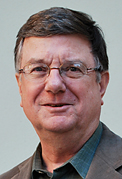 |
|||||||||||
|
November/December 2012 Vice President’s Report BY FRED ELLIOTT
I flew to Silver Spring on August 20 to hold a quarterly staff meeting. That evening I attended a meeting of Chapter 227 in Virginia. I met a great group of people and got to hear an 86-year-old World War II veteran talk about her military experiences. September was highlighted by an Agent Orange town hall meeting I held in Rochester. The idea came after attending a similar meeting in Pennsylvania last year. It was actually much easier to organize the event than I thought it would be. I first contacted the Academy for Veterans’ Success Counseling and Advising Center at our local community college to arrange for a meeting space. They were more than willing to help at no charge. Once I had a place and a date locked in, I began to contact people to organize the rest of the meeting. My first contact was with the executive director of VVA’s Veterans Health Council, Tom Berger. I asked him to attend and to speak about the VHC, veterans’ health issues, and most importantly, the long-term effects of a veteran’s exposure to dioxin on his or her family. I then asked VVA’s director of communications, Mokie Porter, to attend and videotape the meeting as well as be a panelist. Next I asked AVVA President Nancy Switzer to be a panelist. They both agreed. Only one more person was needed for the panel, a veterans’ service officer. For this, I turned to our county Veterans’ Service Agency. The agency’s director agreed to provide a service officer—Pat Pudetti, a USMC Vietnam veteran and life member of VVA who is also a VVA accredited service officer. I also contacted the VA and asked to have someone there to register veterans for VA health care. They agreed, and we had someone there with lots of literature from the VA. Rochester, New York, Chapter 20 also volunteered to man a table and distribute VVA health care literature. Additionally, each attendee was given a VVA Agent Orange Education Campaign folder filled with information about dioxin exposure and VVA’s Faces of Agent Orange program. The only thing left was to gather an audience. I began by using Facebook and my email contacts to spread the word, and I asked those whose families have been affected by dioxin to volunteer to share their stories. I talked about it at a Chapter 20 meeting, and I attended a local DAV meeting. Not long after announcing the meeting, several people contacted me about speaking about how dioxin exposure affected their families. The final thing was asking the Chapter 20 Color Guard to present the colors at the meeting. They agreed and did a great job. On the day of the meeting I had no idea how many people would attend, and I spent some time pacing the floor. I shouldn’t have worried, because more than eighty people showed up, and many spoke about their families’ health problems due to dioxin exposure. The meeting was a success. We were able to spread the word about the generational effects of dioxin exposure. I strongly encourage chapters and state councils to hold Agent Orange town hall meetings. Feel free to contact me (felliott@vva.org) or Herb Worthington (hworthington@vva.org), the new Agent Orange Committee chair, for information on conducting your meeting.
|
|||||||||||
| |
|||||||||||
|
|||||||||||
8719 Colesville Road, Suite 100, Silver Spring. MD 20910 | www.vva.org | contact us |
|||||||||||









 In August I attended the National Leadership Conference in Irving, Texas. For the first time, it was a combined conference with AVVA. From the comments I’ve heard from attendees, it was a huge success.
In August I attended the National Leadership Conference in Irving, Texas. For the first time, it was a combined conference with AVVA. From the comments I’ve heard from attendees, it was a huge success.